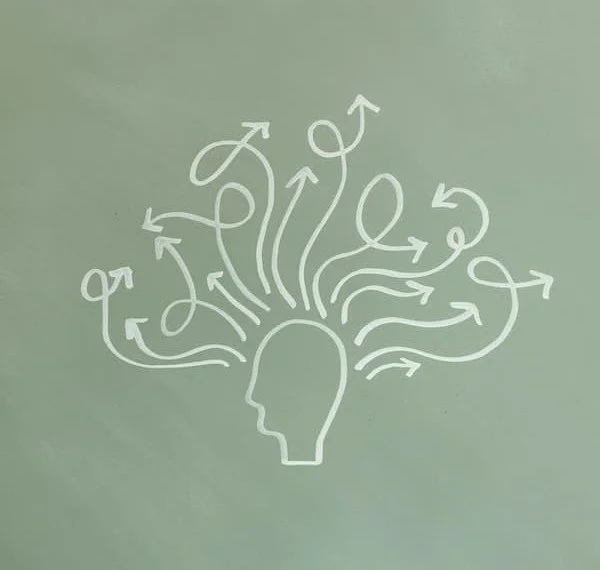
Blog
Does Trauma Therapy Really Work? Understanding What Makes It Effective
If you’ve experienced a traumatic event, whether recent or from your past, you may be wondering: Does trauma therapy really work? The short answer is yes—when approached with the right techniques and in a supportive environment, trauma therapy can be profoundly effective.
Reclaiming Your Inner “Natural Eater”: How Mindful Eating Helps Restore Trust in Your Body
From the moment we’re born, we all enter the world as natural eaters. Babies cry when they’re hungry and turn away when they’re full. They don’t count calories, compare portion sizes, or question whether they “should” or “shouldn’t” be hungry. Their bodies lead the way and they trust that. But over time, many of us lose this innate connection. And it’s not your fault.
Understanding Depression in Men: Signs, Misconceptions, and How Therapy Helps
Over 6 million American men experience depression every year. Yet despite how common it is, depression in men is often overlooked, minimized, or misunderstood. This isn’t because men don’t struggle—it’s because their symptoms frequently show up in ways that don’t match the traditional picture of sadness. We believe it’s essential to shine a light on the real signs of depression in men and how professional support can help men get their lives, relationships, and sense of self back on track.
How Brainspotting Helps You Navigate Major Life Transitions
Major life transitions, whether planned or unexpected, can shake the foundation of your emotional world. Moves, career changes, divorce, the birth of a child, grief, relationship shifts, or simply entering a new season of life can all stir up stress, anxiety, old wounds, and uncertainty. At times like these, traditional talk therapy helps you understand what’s happening, but your body may still hold onto the deeper stress and emotional residue of the change. This is where Brainspotting becomes a powerful tool.
How Attachment Styles Shape Marriage — And How Therapy Can Help You Grow Together
Every couple brings their own history into a relationship. Past experiences, family dynamics, and early childhood connections all influence the way we show up in marriage. One of the most powerful and often overlooked factors is attachment style. Understanding attachment styles isn’t about blaming the past. It’s about gaining clarity, breaking harmful patterns, and building healthier ways of relating. When couples learn how their attachment needs drive their reactions, they can develop stronger connection, compassion, and problem-solving skills that dramatically improve their relationship.
How IFS Therapy Helps Women Navigate Unique Responsibilities, Struggles, and Demands
Women today carry an extraordinary load—nurturing families, advancing careers, managing relationships, and tending to their own well-being. These responsibilities can feel overwhelming, especially when paired with challenges like anxiety, eating disorders, postpartum issues, body image concerns, or depression. At Healing Journey Counseling, we use Internal Family Systems (IFS) therapy to help women understand and heal the complex emotional layers behind these struggles.
Eating Disorders and Their Impact on Social Life and Quality of Life
Eating disorders are not just about food, they deeply affect how a person thinks, feels, and connects with others. Whether it’s anorexia, bulimia, binge eating disorder, or another form of disordered eating, the struggle often reaches into every part of life. As an eating disorder therapist, I often see how these conditions impact relationships, self-esteem, and overall well-being long before someone even realizes how much they’re suffering.
Healing After Fertility Struggles and Pregnancy Loss: How Trauma Therapy, EMDR, and Brainspotting Can Help
For many individuals and couples, the journey toward parenthood is filled with hope, anticipation, and emotional investment. When fertility struggles or pregnancy loss occur, the emotional impact can be devastating. These experiences often bring deep grief, shame, and a sense of isolation that can linger long after the event itself.
Living with Chronic Pain and Illness: How Trauma Therapy Can Help You Heal Beyond the Physical
Living with chronic pain or a chronic illness can be an exhausting and isolating experience. Many individuals find that their suffering isn’t only physical—it’s emotional, too. The ongoing stress of navigating medical appointments, invasive procedures, and uncertainty about your health can leave lasting emotional scars. This emotional impact is often overlooked, yet it can significantly affect your overall well-being.
Navigating the Holidays When You’re Struggling with an Eating Disorder
The holiday season is often described as “the most wonderful time of the year”. A time filled with family gatherings, festive meals, and celebration. But for those struggling with an eating disorder, the holidays can feel overwhelming rather than joyful. If you or someone you love is living with anorexia, bulimia, or binge eating disorder, know that you’re not alone and help is available. Working with a compassionate eating disorder therapist can help you navigate this challenging time and begin to heal your relationship with food, body, and self.
Understanding Men’s Issues: How Therapy Supports Neurodivergent Men Facing Isolation and Societal Pressures
Men today face a unique set of emotional, social, and psychological challenges—especially those who are neurodivergent or on the autism spectrum disorder (ASD). For neurodivergent men, these struggles can feel magnified, often leading to loneliness, self-doubt, and a sense of being misunderstood. The good news is that therapy for men can offer powerful tools to navigate these challenges, build confidence, and foster connection in a world that often misunderstands neurodiversity.
Navigating Life as a New Mother: How Therapy Can Help with Postpartum Anxiety and Depression
Bringing home a new baby is one of the most profound transitions in a woman’s life. Amid the excitement, love, and anticipation, many women also experience unexpected emotional challenges. While motherhood can be deeply rewarding, it can also bring intense pressure, exhaustion, and overwhelming feelings that lead to postpartum anxiety or postpartum depression. Understanding that you are not alone—and that support is available through women’s issues therapy—is the first step toward healing and balance.
The Benefits of an Eating Disorder Care Team: Why a Therapist Is Essential
Eating disorders are serious mental health conditions that affect both physical health and emotional well-being. Recovery is most effective when guided by a comprehensive eating disorder care team. This collaborative approach addresses every aspect of the disorder, ensuring the best chance for lasting healing.
Understanding Trauma, Attachment, and How Therapy Can Help
Our early experiences shape the way we relate to ourselves and others. When those experiences include trauma—whether from childhood abuse, neglect, or other distressing events—they can have a lasting impact on our attachment style, emotional regulation, and relationships.
Depression in Men: Breaking the Silence and Finding Healing Through Therapy
When people think about depression, they often imagine sadness, crying, or withdrawal. But for many men, depression can look very different, and because of this, it often goes unnoticed or untreated. Societal expectations around masculinity can make it hard for men to talk about their emotions or seek help, leaving many to suffer in silence.
How Hearing About School Shootings Has Increased Teen Anxiety About Going to School and How Therapy Can Help
For many teens, school used to be a place to learn, grow, and connect with friends. But in today’s world, stories about school shootings dominate headlines and social media feeds. Even if a tragedy happens in another state, teens are instantly exposed to the details, videos, and conversations online. Understandably, this has created a rise in school-related anxiety.
Why “Toxic Positivity” Can Make Anxiety Worse for Women
We live in a culture that often tells us to “look on the bright side,” “stay strong,” or “just think positive.” While positivity can sometimes help us find hope, there’s a darker side to this mindset known as toxic positivity, the pressure to hide or deny difficult emotions in favor of constant cheerfulness. For women, who often carry unique expectations around caregiving, resilience, and emotional strength, toxic positivity can be especially damaging and can make anxiety worse.
Social Media, Self-Worth and the Role of Life Transition Therapy
Social media is a powerful tool—it connects us with friends, provides entertainment, and even offers valuable communities of support. But behind the filters and highlight reels, it can also take a toll on how we view ourselves, especially when we’re moving through major life transitions.
How Imago Dialogue in Marriage/Couples Counseling Can Deepen Intimacy, Connection, and Communication
Marriage is a journey filled with joy, challenges, and opportunities for growth. But even the strongest marriages face moments of misunderstanding, emotional distance, or communication breakdowns. This is where marriage counseling, especially using the technique of Imago Dialogue, can play a transformative role.
Rediscovering Yourself in Motherhood: Postpartum Mental Health and the Power of Therapy
Becoming a mother is one of the most profound transformations a woman can experience. It’s beautiful, yes, but it’s also overwhelming, isolating, and deeply disorienting. Beneath the Instagram-worthy baby announcements and pastel-colored nurseries, many women silently wrestle with anxiety, depression, and a haunting question: Who am I now?




















